RESEARCH & SCIENCE
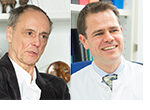 LITMUS
LITMUSSearching for effective ways to diagnose non-alcoholic fatty liver disease
Around 20 million people in Germany suffer from non-alcoholic fatty liver disease (NAFLD). It can cause severe inflammation, cirrhosis of the liver, and even cancer. At present, there is no simple technique to detect NAFLD reliably at an early stage. But this is essential for the development of appropriate new drugs and therapies. The LITMUS research project seeks to make a major contribution in this field: Involving an international consortium, with the Mainz University Medical Center being a key player, the LITMUS network is developing biomarkers that open up new horizons.
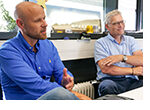 IMMUNOLOGY
IMMUNOLOGYTumors and chronic diseases outsmart the immune system
For decades, researchers at the University Medical Center of Johannes Gutenberg University Mainz (JGU) have been doing outstanding work in the field of immunology. In 2017, their work was further enhanced through the establishment of the Collaborative Research Center (SFB) 1292 on "Targeted influencing of the convergent mechanisms of ineffective immunity in cancer and chronic infections". The German Research Foundation (DFG) agreed to fund it to the tune of EUR 9.7 million for an initial period of four years.
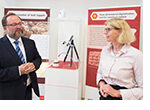 BRINGING THE PAST TO LIGHT
BRINGING THE PAST TO LIGHTNuclear physics and cuneiform studies working hand in hand
Doris Prechel, Professor of Ancient Near Eastern Philology at Johannes Gutenberg University Mainz (JGU), and Professor Frank Maas of the Helmholtz Institute Mainz (HIM) have teamed up to throw light on the past. With the help of state-of-the-art analytical devices developed for use in physics, they are busy deciphering thousand-year-old cuneiform tablets. The two researchers now presented the initial results of their cooperation in an exhibition.
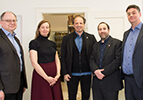 EU PROJECT REIRES
EU PROJECT REIRESNew religious research network
Twelve renowned European institutions are participating in the EU project "Research Infrastructure on Religious Studies" (ReIReS). Its aim is to promote and network the exchange of religious knowledge and research. Johannes Gutenberg University Mainz (JGU) is part of the cooperation. Talmud expert Leor Jacobi from Israel will use his ReIReS scholarship to investigate the Yom Kippur ritual of the medieval Jewish community in Mainz.
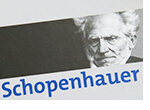 SCHOPENHAUER RESEARCH CENTER
SCHOPENHAUER RESEARCH CENTERA philosopher not suitable for a university curriculum?
For a long time, it was the only academic institution at a German university dedicated to the study of Arthur Schopenhauer and today it is still the best place to go for anyone wanting to know more about the philosopher. The Schopenhauer Research Center was founded in 2001 by Professor Matthias Koßler at the Philosophy Department of Johannes Gutenberg University Mainz (JGU).
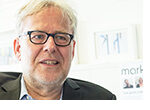 BOOK STUDIES
BOOK STUDIESArtificial intelligence as reviewer, text to speech reader – and author?
At the beginning of the year, Professor Christoph Bläsi hosted the 14th Mainz Colloquium on te topic of Artificial Intelligence in the Book World – Machines as editors, Machines as Readers? at the Gutenberg Institute for World Literature and Written Media of Johannes Gutenberg University Mainz (JGU). We talked with Professor Bläsi and learned what is currently feasible in the field of Book Studies and where it might be heading in the future.
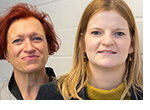 AFRICAN LINGUISTICS
AFRICAN LINGUISTICSPilot project on linguistic integration and strategies of language acquisition
The Department of Anthropology and African Studies of Johannes Gutenberg University Mainz (JGU) and the Institute of African Studies of Goethe University Frankfurt initiated the joint pilot project "Africans in the Rhine-Main region" in early 2019. It is dedicated to the currently much-debated sociopolitical issue of linguistic integration. The Rhine-Main Universities (RMU) Initiative Funding for Research finances this partnership undertaking.
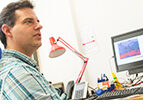 ATMOSPHERIC PHYSICS
ATMOSPHERIC PHYSICSTracking the climate using MESSy
Professor Holger Tost wants to find out what is going on in the atmosphere and uses computer simulations to investigate the processes influencing our climate and weather. He was appointed to the Carl Zeiss Foundation Endowed Professorship on Environmental Modeling in the Climate System at Johannes Gutenberg University Mainz (JGU) in 2016.
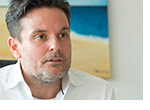 GEOINFORMATICS
GEOINFORMATICSA model of urban climate
With the help of ENVI-met, it is possible to determine the microclimate of a city down to the square meter, while effects of construction projects, soil sealing, and green spaces can be exactly predicted. Professor Michael Bruse of the Institute of Geography of Johannes Gutenberg University Mainz (JGU) has been working on this software for 25 years. As time went by, the specialist in geoinformatics incorporated increasingly more factors and made the 3D simulation more complex. ENVI-met is now in use around the world.
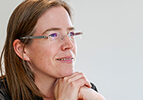 COMPARATIVE LITERATURE
COMPARATIVE LITERATUREEuropean travelogues in context
Dr. Sandra Vlasta joined the Gutenberg Institute for World Literature and Written Media of Johannes Gutenberg University Mainz in October 2017 with a Marie Skłodowska-Curie Fellowship. Here, the Viennese expert in comparative literature is currently working on her research project on European Travelogues in Context. The Socio-Political Dimension of Travelogues in Europe: 1760 – 1850.
